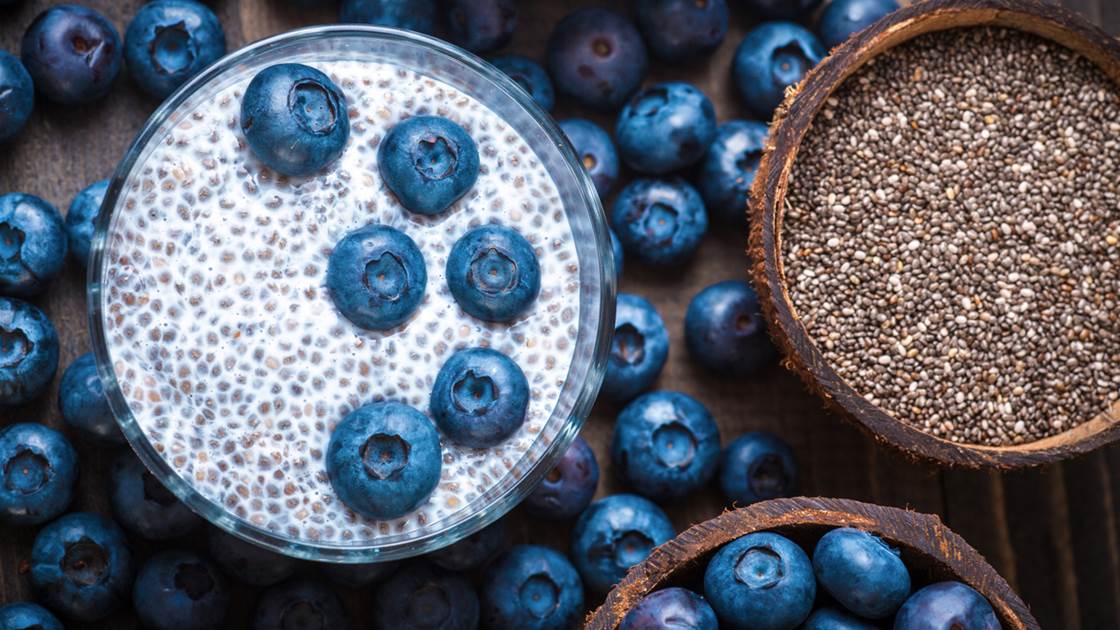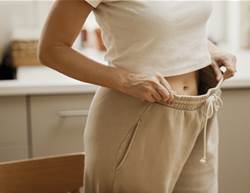Chia seeds have a reputation for being a “superfood”—and for a good reason: They may be tiny, but they pack a wallop of a nutritional punch.
In fact, just one spoonful of chia seeds—that’s 14.17 grams, to be precise—has just 69 calories, but boasts 5 grams of fibre, 4 grams of fat, and 2 grams of protein.
“You can find a lot of foods that are high in fibre and fat, but chia seeds have these benefits in a very small package,” says dietitian and author of The Superfood Swap Dawn Jackson Blatner. “I think that’s what makes them super.”
The health benefits of chia seeds aren’t exactly new—in fact, people have been eating them for more than 5,000 years. Originally from Mexico and Guatemala, chia—i.e., Salvia hispanica L., a member of the mint family—was used by the Aztecs and Mayans in everything from meals to medicines to cosmetics, according to a study in the Journal of Food Science and Technology.
And these tiny seeds are as versatile as they are healthy: “I use them anywhere that I use chopped nuts,” says Jackson-Blatner. “I put them in smoothies or on top of a salad, or I’ll use them to make chia seed pudding.” (Get started with these recipes for chia seeds.)
Available year-round, you can buy them online or easily find them at your local grocery or health store.
Still not convinced? Here are six reasons why chia seeds are good for your health—proof that good things really do come in small packages.
1. Chia seeds are loaded with fibre
One tablespoon of chia seeds packs a whopping 5 grams of fibre—about 20 percent of the recommended daily fibre intake. (By contrast, the same amount of brown rice contains just .2 grams of fibre.) Even though dietary fibre can help lower our cholesterol levels and shore up our digestive health, statistics show that most women in the United States are only eating about 15 grams per day—well short of the recommended 25 grams.
2. Chia seeds may help build strong bones
Chia seeds are high in phosphorus and magnesium—two minerals that can help keep our bones healthy, says dietitian and author of Flat Belly Cookbook for Dummies Tara Gidus Collingwood. In a study published in the Nutrition Journal, people who had the highest intakes of phosphorus had a 45 percent lower risk of osteoporosis than those with the lowest intakes.
One tablespoon of chia seeds contains 122 milligrams of phosphorus and 47 milligrams of magnesium—about 17 percent and 15 percent of your recommended daily intake, respectively.
Tip: Make an egg substitute in recipes by adding 3 Tbsp water to 1 part chia seeds.
3. Chia seeds are a complete protein
It can be hard for people who eat a plant-based diet to find “complete proteins”—i.e., proteins that contain all of the essential amino acids that your body needs to keep functioning. (Complete proteins tend to be found in animal products, including meat, poultry, and seafood.)
Chia seeds, however, are a complete protein, which makes them a good option for vegans and vegetarians, says Gidus Collingwood. While a tablespoon will only net you 2 grams (one reason why it shouldn’t be your main protein source, says Jackson Blatner), you can boost your protein intake by making a chia seed pudding with soy milk and crushed almonds.
Bonus: “Chia seeds also make a great substitute for eggs in recipes,” says Jackson Blatner. “Add 3 tablespoons water to 1 part chia seeds, and you have this gooey mixture that works as an egg replacement.”
4. Chia seeds are rich in omega-3 fatty acids
Chia seeds are a source of alpha-linolenic acid (ALA), a type of omega-3 fatty acid that may offer a “modest protection” against cardiovascular disease, according to a study in The American Journal of Clinical Nutrition. ALA is an essential fatty acid; because your body can’t produce it on its own, you have to consume it from food.
That said, Gidus Collingwood notes that people still need to get two other kinds of omega-3s—docosahexaenoic acid (DHA) and eicosapentaenoic acid (EPA)—from fish and seafood. Although your body can convert some ALA into DHA and EPA, it can only do so in small amounts, according to the National Institutes of Health.
Tip: Pair yogurt with 7 grams of chia seeds to reduce your calorie intake 25% at your next meal.









